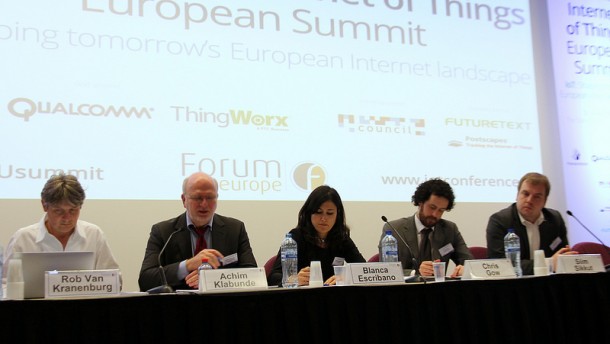The Internet of Things is, in a nutshell, the technology able to transform any inert object into an intelligent one – the famous word “smart” -, endowing it with its own – virtual – identity and the ability to communicate with others. A brand new era has come along with this technology, the fusion of our physical and digital realities. It is what has come to be known as the “ubiquitous” society, a term derived from the Latin word ubique and which means “everywhere”. It deals with, according to the experts, a kind of technology that has arrived to turn everything around.
The consulting firm Gartner estimates that the Internet of Things will provides the global economy with a financial contribution of 1.9 trillion dollars by 2020, a figure which will increase up to 5.17 trillions in 2025.
In the same vein, Forrester, a leading firm in market analysis estimates that, while only 15% of the big companies had an ongoing strategy related to this field in 2012, 2014 closed with 25%. However, the most remarkable thing is the prospect for the future. Today, more than 80% of the big firms consider that it will become the most strategic initiative for their organization in the next decade.
Nevertheless, not only does this technology reach new firms, but also it does it with tools which allow those firms to cut costs in processes such as logistics or production. That is why, the McKinsey Global Institute foresees an increase of 2% to 5% in industrial production.
Can you imagine the professional possibilities which could arise in this field? It is important to make it clear that it would be essential, as a matter of course, to count on professionals with the most traditional profiles related to the field of new technologies: analysts, programmers, etc. However, this technology generates many opportunities for people belonging to other “adjacent” fields, such as Mathematics, Statistics or Marketing.
The experts estimate that, at present, the developers who contribute to its expansion do not exceed 300.000 worldwide. In the face of this estimations, predictions point to a further demand for these professionals which could reach 4.5 million of such jobs in 2020. In other words, this specialized workforce will have to be multiplied by 15.
What are you waiting for? Are you defining your future professional career? Rewriting your most experienced profile? Thinking about entrepreneurship? This promising future also belongs to you. Woman and technology is a perfect binomial, but yet very few women dare stand up for it. Don’t let it go away. The Internet of Things needs your feminine talent. We all do.

